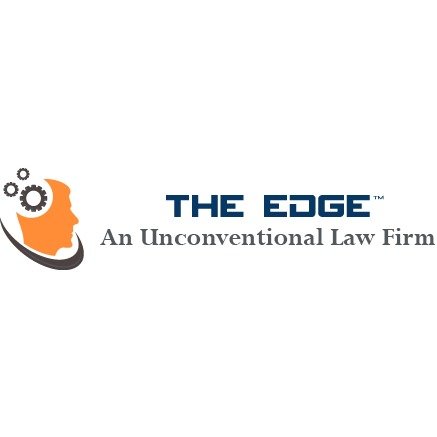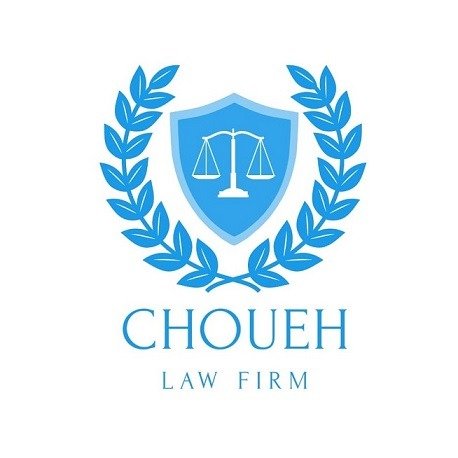Best General Litigation Lawyers in Beirut
Share your needs with us, get contacted by law firms.
Free. Takes 2 min.
List of the best lawyers in Beirut, Lebanon
About Litigation Law in Beirut, Lebanon
Litigation in Beirut, Lebanon, plays a crucial role in resolving civil, commercial, and administrative disputes through the judicial system. The Lebanese judicial system is influenced by both civil law and Ottoman law, where litigation follows a structured legal process involving multiple stages, including pleadings, discovery, trial, and potential appeals. With Beirut being the hub of legal and commercial activities in the country, the city hosts numerous law firms and practitioners specializing in various aspects of litigation, providing essential services to individuals and businesses involved in legal disputes.
Why You May Need a Lawyer
There are several situations in which individuals and businesses might require the assistance of a lawyer specializing in litigation in Beirut:
- Contract Disputes: Disagreements over the terms and fulfillment of a contract.
- Property Disputes: Issues related to ownership, occupancy, or leasing of real estate.
- Commercial Litigation: Involving business-related conflicts, such as shareholder disputes or intellectual property issues.
- Family Law Matters: Such as divorce, custody battles, and division of assets.
- Employment Disputes: Over wage, termination, or workplace conditions.
- Debt Recovery: Involved in reclaiming owed money.
- Tort Claims: Seeking compensation for personal injury or property damage.
Local Laws Overview
The legal framework in Lebanon, including Beirut, is based on a mix of civil law and religious laws. Key aspects relevant to litigation include:
- Civil Procedure Code: Governs the litigation process, outlining steps from filing lawsuits to appeals.
- Contract Law: Governed mainly by the Lebanese Code of Obligations and Contracts, covering various contracts-related issues.
- Property Law: Encompasses regulations on ownership, leasing, and real estate transactions.
- Family Law: Personal status laws are subject to religious affiliations, which can influence litigation in family matters.
- Commercial Law: Covers issues of commerce and trade, including obligations of business entities.
Frequently Asked Questions
What is the process of initiating litigation in Beirut?
The litigation process starts by filing a lawsuit in the competent court. It involves serving a notice to the other party, presenting arguments and evidence, and can proceed to trial if not settled.
How long does a typical litigation case take to resolve?
The duration varies depending on the case complexity, the court's schedule, and whether the decision is appealed, often ranging from several months to a few years.
Can I represent myself in court?
While legally permissible, self-representation in complex litigation cases is not advisable due to the intricate legal knowledge required and procedural challenges.
What are the costs associated with hiring a lawyer for litigation?
Costs can vary greatly based on the lawyer's experience, the case's complexity, and the duration of legal services. It typically includes consultation, representation fees, court fees, and other legal expenses.
How is a lawyer-client relationship established?
It is established through a formal agreement outlining the scope of services, fees, and confidentiality obligations.
What are the chances of success in litigation?
The probability of success depends on the case's specifics, evidence strength, and applicable laws. An experienced lawyer can provide a realistic assessment of the case.
Is Alternative Dispute Resolution (ADR) available in Beirut?
Yes, ADR methods like mediation and arbitration are available and often encouraged to resolve disputes more quickly and amicably.
What should I bring to my first consultation with a litigation lawyer?
Relevant documents such as contracts, correspondence, and any evidence supporting your claim or defense should be brought to the initial consultation.
Can litigation outcomes be appealed?
Parties unsatisfied with a judgment may appeal to a higher court, although specific grounds are required, and appeal must be lodged within a specified timeframe.
What happens if I lose a litigation case?
If you lose, you may be required to comply with the judgment, which could include financial compensation, property restitution, or other outcomes. Legal options for appeal should be discussed with your lawyer.
Additional Resources
For those seeking more information or assistance, consider the following resources:
- Beirut Bar Association: Provides information on legal practitioners and resources for legal assistance.
- Ministry of Justice: Offers insights into the Lebanese judicial system and legal processes.
- Legal Aid Organizations: Various NGOs offer pro bono legal services to eligible individuals.
Next Steps
If you require legal assistance in litigation, consider the following steps:
- Research and shortlist experienced litigation lawyers in Beirut.
- Schedule consultations to discuss your case, seeking opinions and costs.
- Gather all relevant documents and evidence pertaining to your case.
- Select a lawyer who best understands your needs and with whom you feel comfortable.
- Formally engage the lawyer through a service agreement, outlining terms and scope.
Lawzana helps you find the best lawyers and law firms in Beirut through a curated and pre-screened list of qualified legal professionals. Our platform offers rankings and detailed profiles of attorneys and law firms, allowing you to compare based on practice areas, including General Litigation, experience, and client feedback.
Each profile includes a description of the firm's areas of practice, client reviews, team members and partners, year of establishment, spoken languages, office locations, contact information, social media presence, and any published articles or resources. Most firms on our platform speak English and are experienced in both local and international legal matters.
Get a quote from top-rated law firms in Beirut, Lebanon — quickly, securely, and without unnecessary hassle.
Disclaimer:
The information provided on this page is for general informational purposes only and does not constitute legal advice. While we strive to ensure the accuracy and relevance of the content, legal information may change over time, and interpretations of the law can vary. You should always consult with a qualified legal professional for advice specific to your situation.
We disclaim all liability for actions taken or not taken based on the content of this page. If you believe any information is incorrect or outdated, please contact us, and we will review and update it where appropriate.









